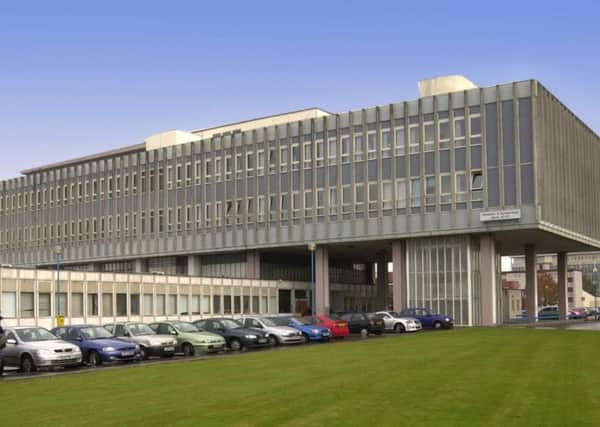Baby dies after infection at Glasgow hospital


The newborn, which had existing medical problems, died at the weekend after being struck down by the bacterial infection Serratia marcescens in the unit linked to Scotland’s newest “superhospital”.
Five other babies are being monitored as they have been “colonised” by the gut infection, where it is present but not causing harm, according to a health board spokesperson.
Advertisement
Hide AdAdvertisement
Hide AdNHS Greater Glasgow and Clyde’s public health protection unit and infection control team has launched a probe into the “small increase” in cases identified since July.
A further seven babies, who are no longer in the hospital, picked up the infection.
Alan Mathers, chief of medicine for Women and Children’s Services at NHS GGC, said: “Our deepest sympathies are with the family of the baby who has so sadly passed away.
“None of the five babies in the unit who are colonised are giving cause for concern as a result of the colonisation.”
Serratia marcescens can naturally occur in the gut and its presence on the skin or in the body is not usually harmful to healthy people.
However in patients with impaired immune systems, the bacteria can get into the blood stream and cause an infection.
Mr Mathers said: “Since the increase in incidence of Serratia marcescens colonisation cases was identified as part of our routine surveillance, we have been closely monitoring the situation in line with national guidance.
“Given that there are no other cases of infection and that all the appropriate infection control procedures are in place, the unit will continue to admit new patients as normal.”
Advertisement
Hide AdAdvertisement
Hide AdThe bacterium is found in many different environments, not just hospitals, and can be hard to treat as it is resistant to several antibiotics, said Dr Sarah Coulthurst, a research fellow at Dundee University.
Dr Coulthurst, who is conducting work on how bacteria survive and prosper, said: “It is what we call an ‘opportunistic’ pathogen, which means that when it gets a chance, it can cause infections, sometimes serious ones, but that it is not harmful most of the time.
“Serratia marcescens can cause a variety of infections in people who are very sick, in particular those who have impaired immune systems, including respiratory, eye and blood infections.
“Premature babies do not have a fully functional immune system yet and so are particularly susceptible.”